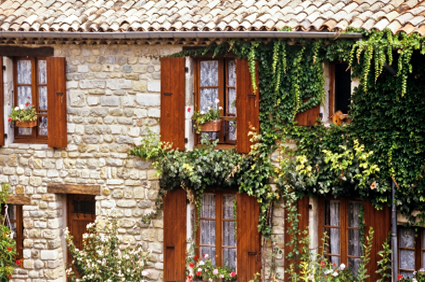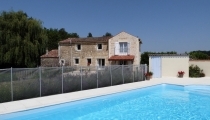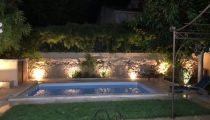A complete legal guide covering all aspects of selling your French property including the cost of selling, including the cost of selling, obligations, VAT and fiscal representation.
TABLE OF CONTENTS
- The cost of selling
- Obligations and reports that you must provide to the buyer
- French Capital gains tax
- Fiscal representation
- VAT
- Signing the sale documents
1. The cost of selling
When selling your French property, it is necessary to use a French notaire. Only notaires are able to effect the transfer of property from one party to another. The good news for the seller is that the purchaser is responsible for the notaire’s fees. However there are a few other costs that may be incurred by the seller.
Agents fees are typically 5 to 10% of the selling price and may be paid by the seller or the purchaser depending on the custom in the area and what is negotiated between the seller, agent and purchaser.
2. Reports and Obligations
The seller is responsible for providing various technical reports to the purchaser as follows:
Termites – if the property is in an area affected which includes most of the warmer parts France.
Asbestos—if the property was built before 1 July 1997
Lead – if the property was built before 1 January 1949
Gas and electricity – if the installations in the property are more than 15 years old
Major natural and man-made risks such as flooding, avalanches, land movement etc if there is a plan to prevent such risks in the area.
Energy performance report
Sewage disposal arrangements report - if the property is not on mains drainage. This comes into force on the first of January 2013 although in some areas the local authority insists on providing this now.
Depending on which of the above apply to your particular property, you would need to budget a few hundred euros for the surveys required.
There is also an obligation to tell the purchaser about any major man-made or natural risks that exist in the area if there is a local authority plan to prevent the risk (which there should be if it exists). This information is available from the Mairie and can also be obtained on the Internet (www.prim.net).
Your French property lawyer or the agent or notaire can help with the provision of these reports.
You are obliged to tell the purchasers of anything about the property that might affect their decision to buy. For example you should tell them if the property is not on mains drainage, if it has any significant damage or defects and whether there are any nuisances in the area. you must inform the purchasers if any dangerous substances have ever been stored there or if there is any pollution or anything that is harmful to the environment on the land. You must also tell them if the property has been affected by a disaster which led to an insurance indemnity being paid in respect of one of the risks existing in the area.
You must inform the purchaser of any easements affecting the property such as rights of way that you are aware of.
3. French capital gains tax (plus values)
If the property is your main residence, then you are exempt from capital gains tax on the sale. The simple rule is that you should be resident in the property at the time of sale which means when the initial contract or compromis de vente is signed. Once a sale has been agreed, it is possible to leave the property and move somewhere else before the sale on the French property completed as long as the time lag is not ‘ unreasonable’.
If the property is not your main home when you sell it, then plus values may be payable. The basic rate of plus valuesfor non-residents is currently 19% on the difference between the purchase and selling price. For those who are resident in France and who are selling a property that is not their main residence, the rate is 31.3%. This higher rate includes a social tax that does not apply to non-residents. You will be required to provide proof that you were residents outside France at the time of the sale in the form of a declaration from the Inland Revenue to that effect.
Allowances are made for the costs incurred at the time of purchase such as notaire’s and agent’s fees. You can also offset the costs associated with the sale such as the cost of the survey reports mentioned above. There is a general allowance of €1000 for each seller so €2000 is allowed for joint owners, even if they are married. You can also offset the cost of works which could be described as construction, reconstruction or improvements that amount to ‘ a new element of comfort’ such as a new bathroom. The cost of renovating an existing bathroom or kitchen would not count. The tax authority will only make allowances if proper VAT invoices from a French registered builders are provided and very often evidence of payment is also needed.
After allowances, the plus valuesliability is then reduced by 2% a year after five years of ownership, 4% after 17 years and 8% after 25 years. Thus after 30 years no capital gains tax is due.
4. Fiscal representation
If any plus values (see above) are due and the selling price of the property is over €150,000, then you will be required to appoint a fiscal representative in France. The cost of doing this is approximately 1% of the sale price.
5. VAT
Up until very recently, VAT was payable on sale of property less than five years old and a reduced rate of stamp duty (0,715%) was payable by the purchaser. However there has been an overhaul of VAT and one of the results is that VAT is no longer payable on the sale of property less than five years old except for those bought ‘off plan’ and the purchaser now pays the normal rate of stamp duty (5.09%)
6. Signing the documents
When you sign the purchase contract (compromis de vente) and the conveyance deed (acte de vente), you will be making various statements and declarations that have been inserted in these documents by the notaire. You must not make any untrue statements or declarations and therefore it is important to understand the contents of the documents you are signing.
It is possible to have a certain clause inserted into the contract and the conveyance deed stating that the purchaser takes the property as he finds it with no recourse against you for any reason. Having such a clause inserted will give you peace of mind but you should be aware that the clause cannot protect you from any defects which you have deliberately hidden from the purchaser.
For more information on selling your French see
French Property Ownership Solutions
Sue Busby
France Legal
www.francelegal.co.uk







